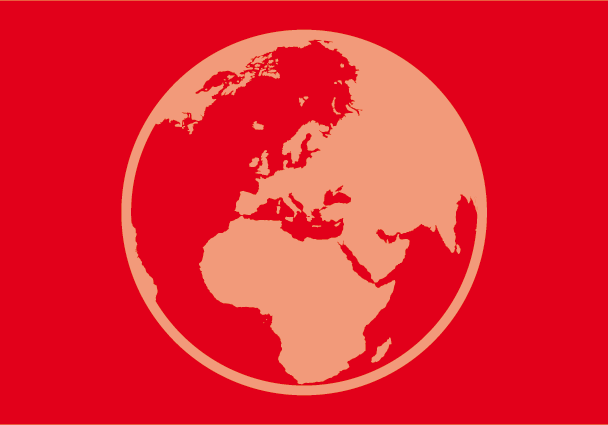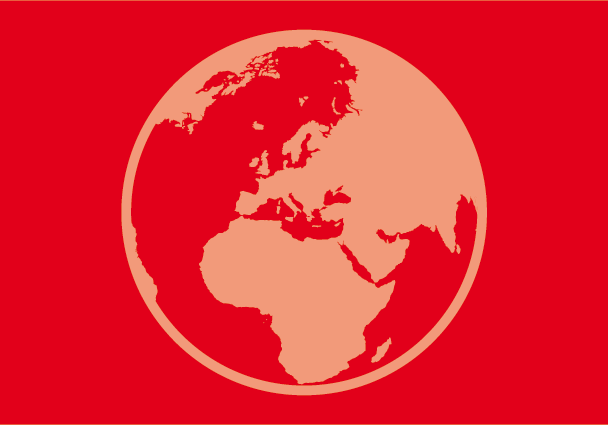 Two members of the ICJ Eminent Jurists Panel on Terrorism, Counter-terrorism and Human Rights, an independent group of eight experts appointed by the ICJ in 2005, ended their visit to Canada today.
Two members of the ICJ Eminent Jurists Panel on Terrorism, Counter-terrorism and Human Rights, an independent group of eight experts appointed by the ICJ in 2005, ended their visit to Canada today.
Arthur Chaskalson, former Chief Justice of South Africa and first President of South Africa’s Constitutional Court, and Professor Robert K. Goldman, former President of the Inter-American Commission on Human Rights and former United Nations Commission on Human Rights’ expert on counter-terrorism and human rights, visited Canada as part of the Panel’s mandate to examine worldwide the compatibility of counter-terrorism measures with international human rights law and, where applicable, international humanitarian law.
During two days of public hearings in Ottawa and Toronto, Justice Chaskalson and Professor Goldman heard from lawyers, academics, national and international human rights organisations, Muslim and Arab communities’ organizations and persons directly affected by Canada’s counter-terrorism measures since 9/11.
The members of the Panel met the Minister of Public Safety, the National Security Advisor to the Prime Minister, the Chair of the Commission of Public Complaints against the Royal Canadian Mounted Police (RCMP) and senior officials and advisors to the Government of Canada, including representatives of the Royal Canadian Mounted Police and military and security services.
The Panel members wish to thank all the persons who testified before them and the Canadian authorities who met them. In particular, they would like to thank ICJ Canada, the Law Faculty of the University of Ottawa and the Nathanson Centre on Transnational Human Rights, Crime and Security of the Osgoode Law School (University of York) for their invaluable support in the organization of the hearings.
The Panel noted that there has been a vigorous debate in Canada in the media, Parliament and civil society on the measures taken by the Canadian Government to counter terrorism. There is also a strong and independent judiciary and parliamentary oversight mechanisms, all of which are essential checks in a democratic system against possible abuses of power. The vote by the House of Commons last February not to renew two controversial provisions of the Anti-Terrorism Act (the investigative hearings and the police power to use preventive arrest and detention up to 72 hours without judicial warrant), the recent ruling of the Supreme Court on the regime of security certificates in the Charkaoui case and the debate in the media on the treatment of detainees in Afghanistan prisons are examples of the working of these checks and balances.
The threat of terrorism
During meetings with the Panel, the Canadian authorities stressed that Canada was and is vulnerable to terrorist attacks. They contended that the measures adopted since 9/11 were and continue to be justified and that the Government has struck the right balance between human rights and security. Those who gave evidence at the public hearings recognized that Canada faces risks of terrorist attacks and the right and duty of the state to protect against this threat. However, many witnesses who appeared before the Panel expressed the view that many of the laws and policies adopted in the aftermath of 9/11 were unnecessary and disproportionate, inconsistent with Canada’s legal traditions and incompatible with Canada’s international legal obligations.
The definition of terrorism and related offences under the Anti-Terrorism Act (ATA)
Concerns were expressed about the speed with which ATA was enacted and in particular about the broad definition of “terrorist activity” contained in the Act and the risk that the clause requiring that the act be committed “in whole or in part for a political, religious or ideological purpose, objective or cause” leads to discrimination against the Muslim and Arab communities. Many witnesses, including representatives of Arab and Muslim communities drew attention to a widespread belief within these communities that the implementation of the Act is directed against Muslims and Arabs resulting in their stigmatization and a sense of insecurity. In this context, some participants welcomed the October 2006 ruling of the Superior Court of Ontario in the Khawaja case striking down the motivation requirement provision for being a violation of the rights to freedom of religion, expression and association while others expressed concern that the decision in fact broadens the definition. The Government representatives informed the Panel that they were aware of the concerns of the Muslim community and that positive action is taken to create a climate in which these concerns can be addressed and resolved.
Concerns were raised about the breadth and imprecision of terminology used in the ATA, in particular the offence of “facilitating terrorist activities” and its potential implications for charities and persons.
Privacy
Concerns were raised about warrantless electronic surveillance of international communications introduced under ATA and the lack of adequate safeguards over collection, storage and sharing of the data. Participants expressed the view that an erosion of privacy within a free and democratic society could, in the long run, make the Canadian population less secure.
Secrecy
Growing secrecy surrounding national security measures was raised as a major issue of concern, in particular, the increasing reliance on untested intelligence information that becomes a substitute for evidence. In addition, concerns were expressed about cross-border sharing of intelligence information and about action taken on the basis of that intelligence that may have been obtained through torture and has often proven to be inaccurate. These actions are a matter of great concern when liberty is at stake as documented by the Maher Arar Commission of Inquiry. In light of these concerns, the introduction of a provision in Canada’s domestic legislation to clearly prohibit the use in all legal and administrative proceedings of evidence obtained by torture or cruel, inhuman or degrading treatment was proposed by some participants.
Concerns were raised also about the use of security certificates under the Immigration and Refugee Protection Act (IRPA) as a form of administrative detention against non-citizens suspected of being a security threat and that, in practice, has led to the detention for years without charge or trial of those subject to the certificates with very limited judicial review.
Concerns were expressed about the secrecy of the proceedings (ex parte and in camera) in security certificate cases where evidence is presented only to the judge in the absence of the suspect and his or her counsel who only receive an unclassified summary of those proceedings.
Although almost all individuals subject to security certificates have been released as a result of the Charkaoui decision, strict conditions and limitations have been imposed on them affecting their freedom of movement and their right to privacy. These measures constitute a severe form of punishment for persons who have not been accused or convicted of any crime. Several participants have expressed scepticism about the possible resort to special advocates as used in the United Kingdom as this system also falls short of guaranteeing due process rights.
Deportation on the basis of diplomatic assurances against torture
Serious concerns were raised about increasing reliance upon diplomatic assurances against torture to deport non-citizens suspected of involvement in terrorist activities. It was stressed that such deportation constitutes a major departure from the absolute prohibition in international law to send persons to countries where they face a risk of torture or ill-treatment.
Transfer of detainees in Afghanistan
Several participants brought to the Panel’s attention allegations that Canadian armed forces in Afghanistan have transferred detainees to the Afghan authorities under an arrangement where it was nonetheless foreseeable that these detainees would be subject to ill-treatment. The Panel was told that this arrangement was deeply flawed and incompatible with Canadian obligations under international humanitarian law, the Convention against Torture and other applicable international instruments. The Panel raised this issue with the Canadian authorities who indicated that if remedial action were necessary, Canada would undertake it.
Conclusions
Some witnesses contended that the Anti-Terrorism Act did not make Canada safer and suggested that existing criminal offences are an adequate tool to deal with security concerns. Several participants drew the Panel’s attention to the fact that the Act’s most controversial provisions have not been used and that very few persons have been charged under the Act in five years. Participants also contended that immigration law should not be used as an anti-terrorism tool and raised concerns that a departure from the normal requirement that the deprivation of liberty should be sanctioned by means of criminal proceedings could have a corrosive effect and seep into other areas of the law.
Attention was drawn to the findings in the Maher Arar Commission of inquiry, during which access to all evidence, including secret evidence, was provided, and which revealed that the sharing of information concerning Mr Arar which was false with the United States authorities had been a cause of his rendition to Syria and detention and torture there. They said that this illustrates the need for proper oversight of intelligence and security services to ensure greater accountability in case of abuses. A number of participants therefore called for the urgent implementation of the comprehensive recommendations of the Commission, especially the establishment of oversight mechanisms of the intelligence services (CSIS) and the Royal Canadian Mounted Police’s national security activities.
Arthur Chaskalson and Robert K. Goldman are holding a press conference at 10.30am on Friday 27 April in the Charles Lynch Room (130-S) on Parliament Hill in Ottawa to share preliminary conclusions on their visit to Canada.
Background
The Panel is composed of eight judges, lawyers and academics from all regions of the world. In addition to Justice Chaskalson and Professor Goldman, the other members are Hina Jilani (Pakistan), a lawyer before the Supreme Court of Pakistan and the UN Secretary General’s Special Representative on Human Rights Defenders; Mary Robinson (Ireland), now Head of the Ethical Globalization Initiative, and former UN High Commissioner for Human Rights and former President of Ireland; Stefan Trechsel (Switzerland), former President of the European Commission on Human Rights, and judge at the International Criminal Tribunal for the former Yugoslavia; Georges Abi-Saab (Egypt), former Judge at the International Criminal Tribunals for the former Yugoslavia and for Rwanda; Vitit Muntarbhorn (Thailand), Professor of Law at Chulalongkorn University in Bangkok and UN expert on human rights in North Korea and Justice E. Raúl Zaffaroni (Argentina), a judge at the Supreme Court of Argentina. The Panel exercises its mandate independently, with the logistical support of the ICJ Secretariat and its network of organizations.
The Panel has held hearings in Australia, Colombia, East Africa (Kenya, Tanzania and Uganda), the United Kingdom (in London on current counter-terrorism policies and in Belfast on lessons from the past), North Africa (Algeria, Morocco and Tunisia), the United States, the Southern Cone (Argentina, Brazil, Chile, Paraguay and Uruguay), South-East Asia (Indonesia, Malaysia, the Philippines and Thailand), the Russian Federation and South Asia (India, Sri Lanka, Nepal, Pakistan, Bangladesh and the Maldives). Other regions where the Panel will hold hearings include the Middle East and Europe. At the end of the hearings’ process, the Panel will publish a global report in the second half of 2007.
Canada-mission Eminent Jurists Panel-press release-2007 (full text, PDF)





